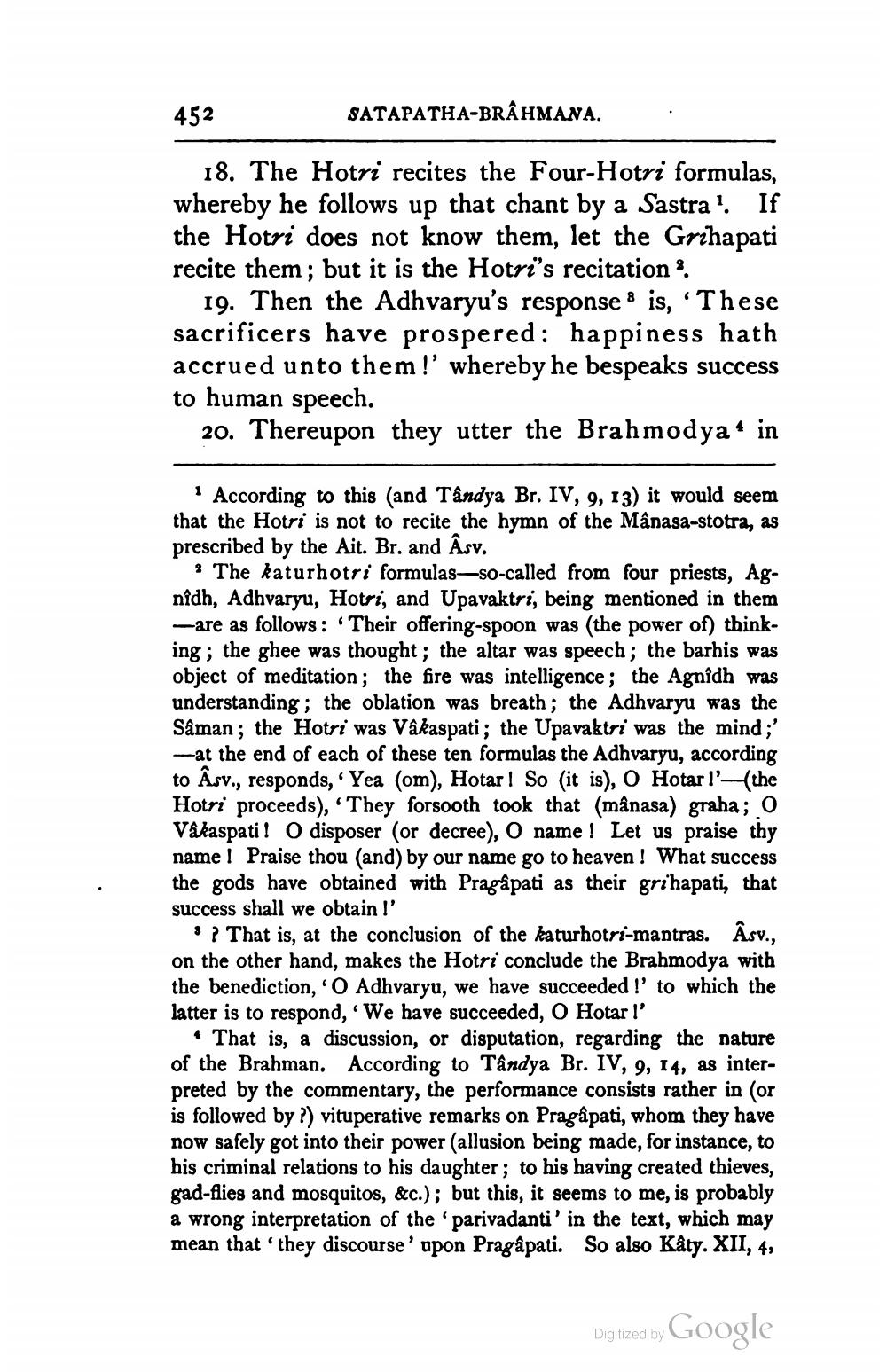________________
452
SATAPATHA-BRAHMANA,
18. The Hotri recites the Four-Hotri formulas, whereby he follows up that chant by a Sastra!. If the Hotri does not know them, let the Grihapati recite them; but it is the Hotri's recitation ?
19. Then the Adhvaryu's response 8 is, 'These sacrificers have prospered: happiness hath accrued unto them!' whereby he bespeaks success to human speech.
20. Thereupon they utter the Brahmodya' in
1 According to this (and Tândya Br. IV, 9, 13) it would seem that the Hotri is not to recite the hymn of the Mânasa-stotra, as prescribed by the Ait. Br. and Asv.
9 The katurhotri formulas-so-called from four priests, Agnidh, Adhvaryu, Hotri, and Upavaktri, being mentioned in them -are as follows: Their offering-spoon was (the power of) thinking; the ghee was thought; the altar was speech; the barhis was object of meditation; the fire was intelligence; the Agnidh was understanding; the oblation was breath; the Adhvaryu was the Saman; the Hotri was Vâkaspati; the Upavaktri was the mind;'
-at the end of each of these ten formulas the Adhvaryu, according to Âsv., responds,' Yea (om), Hotar! So it is), O Hotar l'-(the Hotri proceeds), 'They forsooth took that (mânasa) graha; O Vâkaspati! O disposer (or decree), O name! Let us praise thy name! Praise thou (and) by our name go to heaven! What success the gods have obtained with Pragapati as their grihapati, that success shall we obtain I
s? That is, at the conclusion of the katurhotri-mantras. Âsv., on the other hand, makes the Hotri conclude the Brahmodya with the benediction, 'O Adhvaryu, we have succeeded !' to which the latter is to respond, We have succeeded, O Hotar l'
• That is, a discussion, or disputation, regarding the nature of the Brahman. According to Tândya Br. IV, 9, 14, as interpreted by the commentary, the performance consists rather in (or is followed by ?) vituperative remarks on Pragâpati, whom they have now safely got into their power (allusion being made, for instance, to his criminal relations to his daughter; to his having created thieves, gad-flies and mosquitos, &c.); but this, it seems to me, is probably a wrong interpretation of the 'parivadanti' in the text, which may mean that they discourse' opon Pragâpati. So also Kåty. XII, 4,
Digitized by Google




